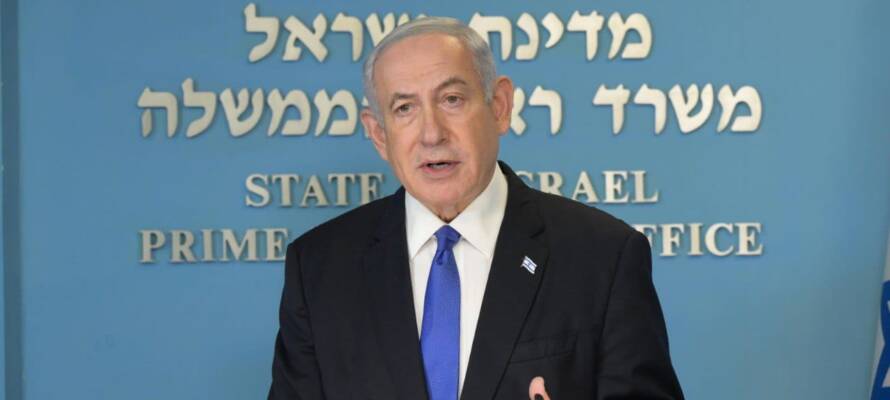‘We see no way to eliminate Hamas militarily without destroying these remaining battalions.’
By Jack Elbaum, The Algemeiner
Israeli Prime Minister Benjamin Netanyahu on Tuesday reaffirmed his intention to launch a military offensive into Rafah — the Hamas terror group’s last stronghold in Gaza — despite US President Joe Biden’s warning against such a move just a day earlier.
“We are determined to complete the elimination of Hamas,” Netanyahu said in introductory remarks to the Foreign Affairs and Defense Committee of Israel’s parliament, known as the Knesset. “This requires the elimination of the remaining battalions in Rafah and, of course, the 1.5 battalions in the camps in the center. We are determined to do this.”
Netanyahu’s comments came one day after Biden told Netanyahu that he has “deep concerns about the prospect of Israel conducting a major ground operation in Rafah, where more than one million displaced civilians are currently seeking shelter after fleeing fighting in the north,” according to a White House readout regarding their conversation.
The Israeli premier acknowledged the concern, saying, “We have a debate with the Americans over the need to enter Rafah, not over the need to eliminate Hamas, but the need to enter Rafah. We see no way to eliminate Hamas militarily without destroying these remaining battalions.”
At the same time, he said, “Out of respect for the president, we agreed on a way in which they can present us with their ideas, especially on the humanitarian side; of course, we fully share this desire to facilitate an orderly exit of the population and the providing of humanitarian aid to the civilian population. We have been doing this since the beginning of the war.”
The latest back and forth between Netanyahu and the Biden administration comes amid rising tensions between the leaders.
After US Senate Majority Leader Chuck Schumer (D-NY), who is Jewish, attacked Netanyahu on the Senate floor as a principal obstacle to peace between Israel and the Palestinians — and called for new elections in Israel to oust Netanyahu — Biden called it a “good speech.”
Many observers saw Schumer’s commentary on Israel’s domestic political affairs as inappropriate.
The Conference of Presidents of Major American Jewish Organizations wrote in a statement that “at a time when Israel is fighting an existential war, on the embers of the 1,200 innocents massacred on Oct. 7, it is not a time for public criticisms that serve only to empower the detractors of Israel, and which foster greater divisiveness, when unity is so desperately needed.”
Netanyahu also addressed Schumer’s comments during an interview on CNN.
“It’s inappropriate to go to a sister democracy and try to replace the elected leadership there,” Netanyahu said. “That’s something the Israeli public does on its own.”
White House national security adviser Jake Sullivan called it “an interesting irony” that “the prime minister [is] speaking on American television about his concerns about Americans interfering in Israeli politics,” noting that he was asked by a reporter whether Americans should “be speaking into Israeli politics, which, in fact, we don’t do nearly as much as they speak into ours.”
“But that’s not a constructive answer to your question. Just an observation,” he added.
Biden has been under pressure from some of his political allies to limit future support for Israel, particularly if it moves forward with an operation in Rafah to root out Hamas.
Earlier this month a group of 37 Democratic lawmakers sent a letter to the White House suggesting an Israeli invasion of Rafah may violate its outlined conditions on aid. The lawmakers wrote: “While we continue to urge Israel to avoid an expanded operation in Rafah, we share your [Biden’s] obvious concern about the absence of a credible plan for the safety and support of the more than one million civilians sheltering in Rafah.”
They concluded such an operation “should not be supported by US taxpayer-funded assistance” when it “likely” violates “specific principles outlined” by the Biden administration.
The tension may start to fizzle out, or it could get stronger when US and Israeli officials meet in Washington, DC in the near future.
According to the White House, “the president and prime minster agreed to have their teams meet soon in Washington to exchange views and discuss alternative approaches that would target key elements of Hamas and secure the Egypt-Gaza border without a major ground operation in Rafah.”
